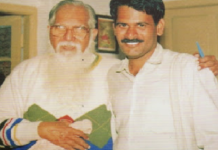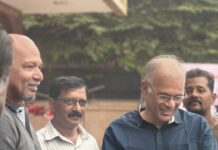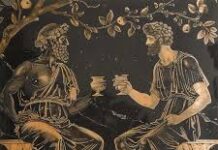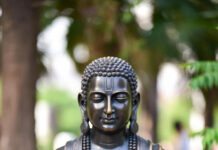 Respected Jeyamohan,
Respected Jeyamohan,
You have written about confronting pettiness with anger (in an essay titled “This is how they are”). I have had a long-standing doubt about whether it is right to respond to arrogance with anger.
There have been times when I have been enraged by the pettiness of others. I have harshly rebuked them. But afterward, I have regretted it and wondered if I am still lacking in refinement…
Is it right for a good father or teacher to punish their children’s ignorance out of anger?
With regards,
Arun.
Dear Arun,
In Kumarasambhava, Kalidasa uses a famous metaphor. He describes the path of a lion walking after slashing open an elephant’s head and feasting on its blood. The drops of blood falling from its claws look like rubies scattered in the snow. That image always moves me deeply. That trail will eventually disappear, yet remains far more precious than any ordinary footprint.
*
Your question can be answered based on the context in which we understand something.
If a person tries to confront the petty behaviours that come their way through anger, it may seem fitting at the moment. But it will gradually destroy their inner peace, leaving them unable to live a simple, joyful life.
Therefore, the mature way is to understand pettiness as an unavoidable part of human life. That is what I have always practised in my personal life. You might have noticed that I do not react to attempts to provoke me. I don’t read or respond to them and that’s the approach I recommend to others as well.
In the long run, only what is achieved will remain, not what was said. I have come to realise this through experience. Vishnupuram stands today in its full form and all the dust thrown at it remains only if I mention it.
However, this approach is not applicable whenever an intellectual, scholar, or scientist faces disrespect or neglect. In such situations, it’s not individual ignorance or carelessness at play, but a societal blindness.
This societal blindness is a kind of disease that slowly destroys the society and stunts its growth. Ignoring or covering it up only helps the disease to spread further. That societal blindness, which is a symptom of the underlying disease, must be openly revealed. The only effective way to confront it is through a firm, unyielding approach. It’s akin to a surgeon’s knife that is sharp and precise, and helps in cutting out the ailment.
Once it is confronted, we can then investigate why it exists and explore solutions. This is exactly what writers and artists around the world do. When you look at writers and artists globally, you’ll see how fiercely and aggressively they have responded to their times and societal environments. The more blind and backward a society becomes, the sharper their response. Like shouting into deaf ears.
People here may not know how writers across the world have responded to society because they wouldn’t have read anything beyond what pleases them. They are only familiar with popular fiction meant to comfort them. In their minds, they wonder why should someone who ought to make us happy scold us. That’s where these reactions stem from.
We are still living with the mindset of the old feudal era. Feudalism had many attitudes that demeaned artists. We see artists standing meekly before feudal lords, serving them like mere attendants. In Tamil Nadu, it was considered a great honour for poets to serve betel leaves to zamindars. In Britain, making beds for kings was seen as the highest honour for artists.
Democracy changed the place of artists. Democracy thrives on ideas, and those who shape ideas, artists and writers, gained immense importance. They came to be regarded as the conduits for the innate voices that guided the people.
In world literature, Shelley stood tall with that identity, a pioneer and a guide. His contemporary feudal society misunderstood and retaliated against him. But Shelley became a role model for modern poets around the world, including Bharathi. Bharathi introduced himself as Shelleydhaasan (Shelley’s disciple).
Bharathi, who rejected the role of an attendant, must have been naturally demeaned by his society. Tiruvaavaduthurai Rajarathinam Pillai, who boldly refused to apply sandalwood paste to the Zamindars, was similarly ridiculed. Even today, the public’s disdain towards artists stems from this old feudal mindset.
The modern artist confronting this mindset must stand tall and firm. Humility will always be seen through the lens of servitude in our culture. Notice how people who accept the arrogance of a politician or a police officer will still expect a writer to remain submissive. This is due to the deep-rooted mindset that remains unchanged. They may have academic or professional qualifications, but they lack cultural awareness, which is why they vomit out the same old feudal attitudes.
Only an artist who has the strength to stand firm amidst this blindness can maintain their integrity and, in turn, advance their art and literature.
I would say the same to readers of literature. The blindness you see around you is a disease passed down from our feudal era. It argues that reading and flossing your teeth are equally valuable, and equates Bharathi with an auto driver. Don’t shrink away or retreat in hesitation when you encounter this ignorance. Fight it and break it. That is the mission of our era. As our pioneer Bharathi once said, “Tread on it and spit in its face.”
Jeyamohan
Originally published on June 5, 2013.
Translated by Swetha shanmugam











